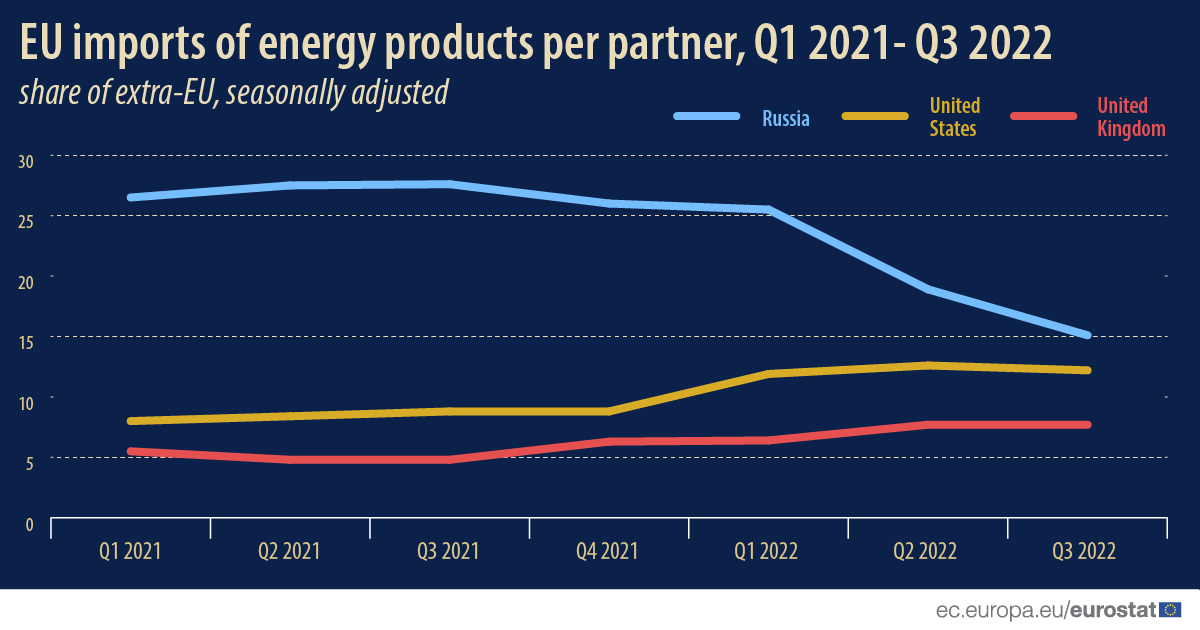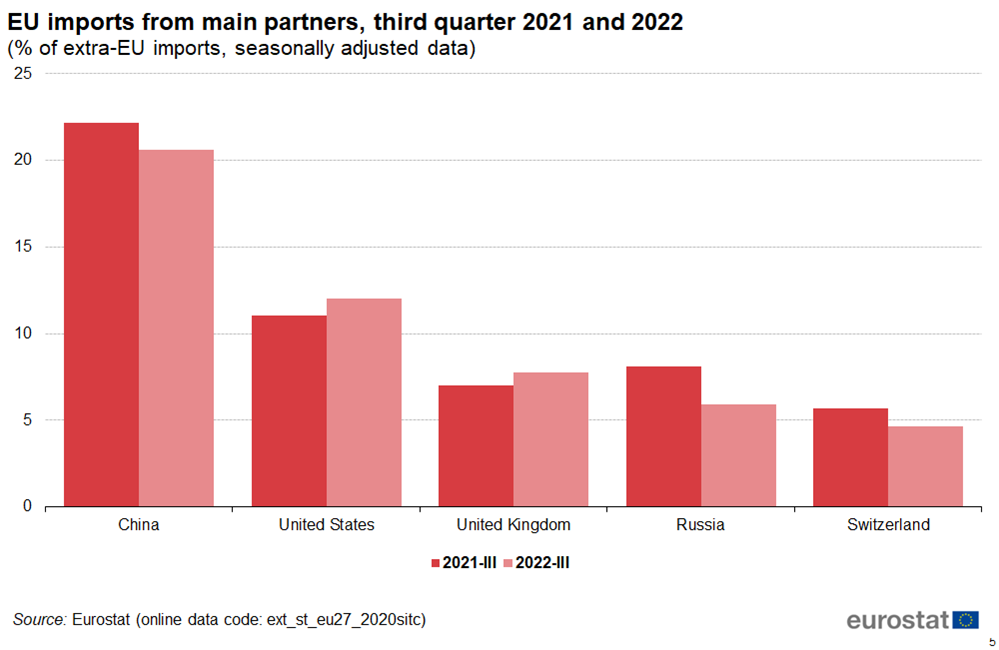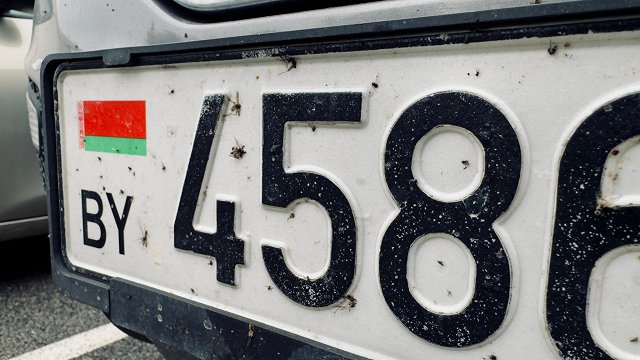It is true that in monetary terms, the value of imports from January to August last year was higher than in the same period in 2021. However, this is mainly explained by the rapid rise in prices of Russia's main export goods – especially energy resources, which many European countries were unable to give up immediately. But it is not true that the European Union bought more from Russia. If you compare the volume of imported goods in tonnes, you can see that actually significantly less was bought from Russia last year .
Secondly, a large part of the sanctions only entered into force in the second half of the year. Comparing the available Eurostat data until October, it can be seen that in terms of volume or mass, imports decreased by more than a quarter. On the other hand, the value of purchased goods was 43% higher than a year ago due to the price increase from February to October – with prices rising rapidly at least in part as a direct result of the invasion.
The fact that the sanctions are working, albeit slower than everyone would like, is also confirmed by the indicators of individual months. Every month, less and less was imported, until in September and October, the value of goods paid to Russia was lower than the year before despite the greatly increased prices.
So is Latvia really being foolish by slashing its economic cooperation with Russia, if no-one else is doig so, as several representatives of the populist "Latvija first" party have claimed on social media? Not really. A number of other European Union countries have decreased imports from Russia both in terms of money and in terms of the volume of goods last year faster than we did. Among them are the Nordic countries, plus Portugal, Luxembourg, Ireland, and Lithuania.

In the crucial energy sector, when considering seasonally adjusted values, the share of Russia in EU energy imports was stable in the first quarter of 2022 (between 26.0% and 27.6%). The share declined sharply between the first and second quarter of 2022 and this downward trend continued between the second and third quarter of 2022. Overall, Russia’s share of EU energy imports fell by more than 10 percentage points between the first and third quarters of 2022, from 25.5% to 15.1%.
In the second quarter of 2022, the combined share of the United States and the United Kingdom was 1.4 pp higher than that of Russia, and this difference grew to 4.8 pp in the third quarter of 2022. In the third quarter of this year, energy imports from the United States represented 12.2% of the total and from the United Kingdom 7.7%.





























